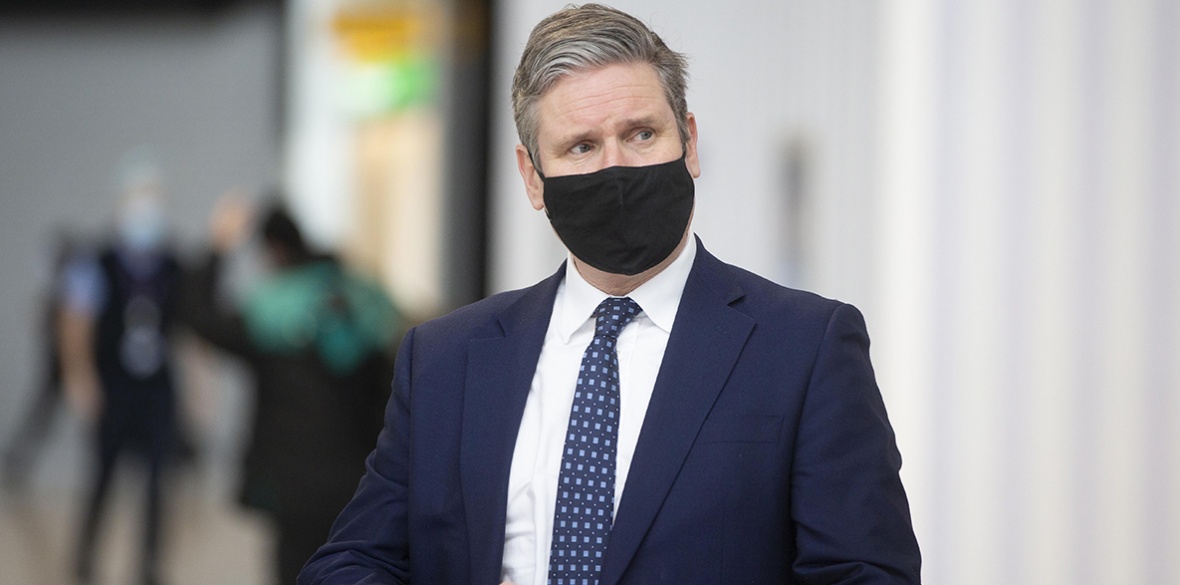This is the last article you can read this month
You can read more article this month
You can read more articles this month
Sorry your limit is up for this month
Reset on:
Please help support the Morning Star by subscribing here
LABOUR’S accusation that the Tories are “playing politics with the recovery” is not merely a diversion from the many serious concerns that socialists, trade unions and indeed the Labour Party itself have identified ahead of this week’s Budget.
In attempting to take the politics out of the economic choices made in Westminster, it feeds a free-market dogma that undermines the case for democratic control of the economy and turns its back on the class character of the crisis.
Labour has learned little from its repeated maulings by the Tories over recent years if it thinks contrasting the wisdom of “experts” with Conservative populism is a winning strategy. But worse, its criticisms are focused on Chancellor Rishi Sunak’s mooted plan to raise corporation tax.
“Economic experts agree that now is not the time for immediate tax rises,” shadow chief secretary to the Treasury Bridget Phillipson charges. “The Chancellor is ignoring that advice for narrow political gain,” she continues in a self-defeating admission that Sunak’s approach is more popular.
The expert act is undermined by shadow-cabinet claims that raising corporation tax could sink struggling businesses, when it is a tax on profits only.
Nor is it even likely to serve Labour’s “fiscal responsibility” messaging.
Sunak banks on outflanking Labour in both directions — committing to significant-sounding headline figures on public spending that will appeal to the new Tory cohort from former Red Wall seats, while using a rise in corporation tax to justify holding down public-sector workers’ pay on the disingenuous grounds that the economic pain is being shared.
Keir Starmer might have noted the rumbles of discontent from Tory backbenchers about corporation-tax rises, and believe he has an opportunity, in combination with Tory rebels, to embarrass the government or even force concessions.
If so, it’s a shame this logic wasn’t followed when Boris Johnson faced backbench rebellions over public-health measures to secure proper sick pay or other economic lifelines in return for Labour support.
But in any case this underestimates the government. Johnson has made it clear that the Budget will be treated as a confidence issue — rebels face being turfed out of the party. Conservative MPs will remember that Johnson acted with similar ruthlessness over Brexit rebellions in 2019. Labour MPs should think back to that period too.
Constantly harping on the government’s supposed incompetence is dangerously misleading. It is true that ministers have presided over one of the highest death tolls and steepest downturns in the world.
But it is also true that they have used the crisis to enrich their friends and accelerate the privatisation of the NHS. For the Tories, this has not been a bad crisis. They have advanced their ideological agenda, and they remain comfortably ahead of Labour in the polls.
If Johnson stands by Sunak’s tax rises, it will be in the same spirit that led the Tories in 2019 to pledge major public investment and an end to austerity in a bid to win over Labour voters. A bid that worked, admittedly when combined with Labour’s decision to fight an election as the champion of a cause – Remain – that the electorate had already specifically rejected.
In a smear against Labour MPs who support raising corporation tax, who include Richard Burgon and Ian Lavery, a “senior party source” briefed that this was an unintentional argument for austerity “because it suggests you can fiddle with taxes and spending to pay off debt accumulated in an economic downturn.”
But in equating pay rises with low taxes as similar prerequisites for economic recovery, Labour mirrors Sunak’s “all in it together” approach with the fiction that what is good for corporate profits is good for workers.
That isn’t true. The super rich have become dramatically richer during the pandemic, as wages have fallen and millions have lost their jobs.
The socialist answer to this crisis is a redistributive one.












